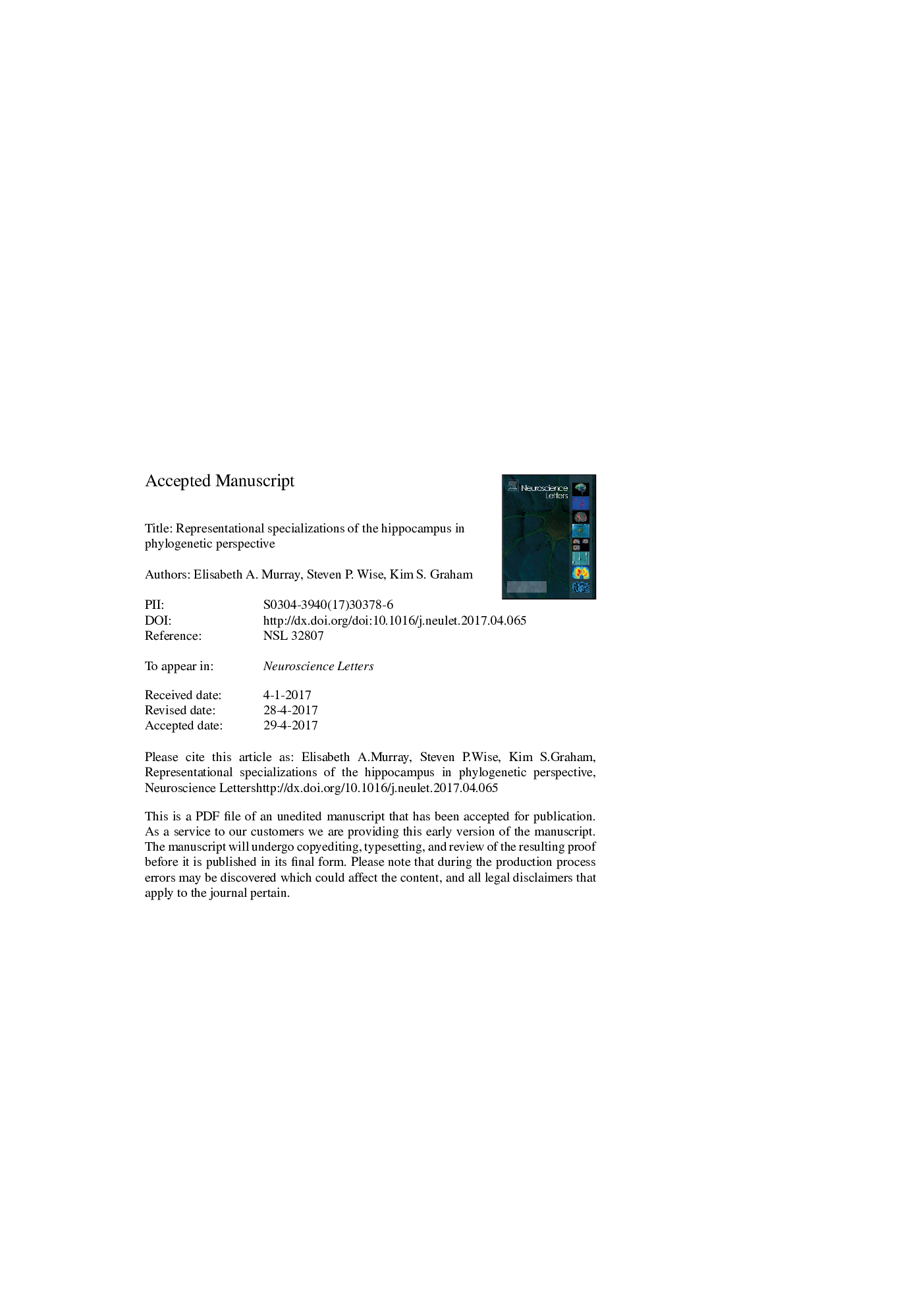| کد مقاله | کد نشریه | سال انتشار | مقاله انگلیسی | نسخه تمام متن |
|---|---|---|---|---|
| 8841440 | 1615019 | 2018 | 20 صفحه PDF | دانلود رایگان |
عنوان انگلیسی مقاله ISI
Representational specializations of the hippocampus in phylogenetic perspective
ترجمه فارسی عنوان
تخصص های نمایندگی هیپوکامپ در منظر فیلوژنتیک
دانلود مقاله + سفارش ترجمه
دانلود مقاله ISI انگلیسی
رایگان برای ایرانیان
کلمات کلیدی
انسان شناسی، حافظه، جهت یابی، ادراک، نمایندگی، حافظه صحنه،
موضوعات مرتبط
علوم زیستی و بیوفناوری
علم عصب شناسی
علوم اعصاب (عمومی)
چکیده انگلیسی
In a major evolutionary transition that occurred more than 520 million years ago, the earliest vertebrates adapted to a life of mobile, predatory foraging guided by distance receptors concentrated on their heads. Vision and olfaction served as the principal sensory systems for guiding their search for nutrients and safe haven. Among their neural innovations, these animals had a telencephalon that included a homologue of the hippocampus. Experiments on goldfish, turtles, lizards, rodents, macaque monkeys and humans have provided insight into the initial adaptive advantages provided by the hippocampus homologue. These findings indicate that it housed specialized map-like representations of odors and sights encountered at various locations in an animal's home range, including the order and timing in which they should be encountered during a journey. Once these representations emerged in early vertebrates, they also enabled a variety of behaviors beyond navigation. In modern rodents and primates, for example, the specialized representations of the hippocampus enable the learning and performance of tasks involving serial order, timing, recency, relations, sequences of events and behavioral contexts. During primate evolution, certain aspects of these representations gained particular prominence, in part due to the advent of foveal vision in haplorhines. As anthropoid primates-the ancestors of monkeys, apes and humans-changed from small animals that foraged locally into large ones with an extensive home range, they made foraging choices at a distance based on visual scenes. Experimental evidence shows that the hippocampus of monkeys specializes in memories that reflect the representation of such scenes, rather than spatial processing in a general sense. Furthermore, and contrary to the idea that the hippocampus functions in memory to the exclusion of perception, brain imaging studies and lesion effects in humans show that its specialized representations support both the perception and memory of scenes and sequences.
ناشر
Database: Elsevier - ScienceDirect (ساینس دایرکت)
Journal: Neuroscience Letters - Volume 680, 27 July 2018, Pages 4-12
Journal: Neuroscience Letters - Volume 680, 27 July 2018, Pages 4-12
نویسندگان
Elisabeth A. Murray, Steven P. Wise, Kim S. Graham,
